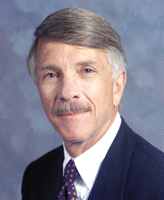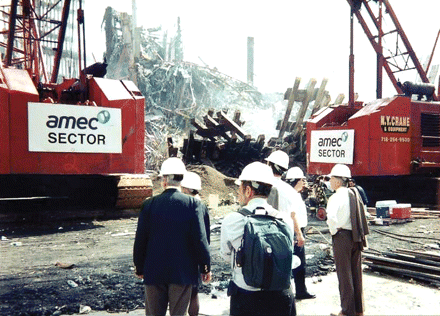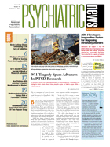One of my favorite photographs, which hangs on the wall of my office, shows a crowd of us decked out in formal wear standing around and sitting on the floor in rapt suspense, as we watched the fly ball settle in the outfielder's glove, the final play of the game when the Yankees won the World Series in 1996. The event was the Centennial Celebration of the New York State Psychiatric Institute (NYSPI), and the place was Windows on the World, at the top of the World Trade Center. The moment was a magical one, suspended in time by the photo. But of course it is now also suspended in imaginary space, and I can't look at the photo without immediately thinking of the terror that lay ahead for those trapped in that very space on September 11, 2001.
I was one of those who saw the destruction and collapse of the towers live, viewing the unimaginable scene from my office window by the Hudson. Admittedly, I was in the relative safety of upper Manhattan, but those images are branded into my brain, just as similar, very personal images of that day are indelibly embedded in the memory of not only every New Yorker, but also every American.
On the one hand, the events of that day seem very far away, yet on the other hand, they can all come flooding back in a heartbeat. In November 2001, I wrote in the Journal of Psychiatric Practice: "In spite of the prior assault on the World Trade Center, the Oklahoma bombing disaster, and the destruction of the American embassies in Kenya and Tanzania, there was no emotional or psychological preparation for this event. Ordinary minds rejected the reality of these historical warnings, and the possibility of a ‘clear and present danger’ seemed the stuff of fiction until September 11."
At the time, I was director of NYSPI, vice chair of psychiatry at Columbia, and chief medical officer of the New York State Office of Mental Health—the state agency that, it turned out, had the lead responsibility to work with the governor's office and the mayor's office to coordinate the massive efforts to help the citizens of New York recover and heal. There is no way, in this brief space, to chronicle the events of those days; it was "on the job training" as I had never experienced. Part of my job was to convene regular meetings of the chairs of departments of psychiatry from all seven medical schools in the New York City region and to meet with state and city mental health commissioners and with representatives from APA, the Substance Abuse and Mental Health Services Administration, the Federal Emergency Management Agency, and other organizations and agencies.
One of our goals was to coordinate our relief efforts and to get good information to New Yorkers about the nature of the acute stress reactions experienced by so many. For example, many people felt guilty about asking for help for their own problems such as anxiety, insomnia, crying spells, loss of appetite, and inability to work and concentrate. They would say that they had no right to feel that way since, after all, they had survived, and in many cases they hadn't even lost loved ones in the disaster. We tried to explain that what they were experiencing were normal reactions to a very abnormal situation.
The generosity of APA members and other mental health professionals, joining forces with civic leaders, clergy, citizen volunteers, and many others who pitched in and helped, was astounding.
These days, I periodically give a talk to patients and families at the Menninger Clinic on the subject of stress, and I show a photo taken about 10 days after 9/11, in which I'm standing with federal, state, and city officials during a hard-hat tour of still-smoldering ground zero. I tell them that I don't think I have significant risk factors predisposing me to develop PTSD, but that I never want to look at this photo, since the atmosphere of terror and loss and grief immediately comes rushing back. My experience, of course, was trivial compared with the trauma experienced by those at or near ground zero or by those who lost loved ones on 9/11. But making myself remember helps me appreciate the reality of PTSD for those who are at risk and are relentlessly exposed to scenes of carnage, day after day, such as on the battlefields of Iraq and Afghanistan and elsewhere.
Psychiatric News has been running a series of articles in recent issues, as we take note of the 10-year mark since 9/11. That date was a wake-up call of traumatic proportions for this country, yanking us into the reality of terrorism and manmade disasters that many other countries have struggled with for decades. The Committee on Psychiatric Dimensions of Disasters is APA's command center for disaster-relief efforts, and the work of its dedicated members is greatly appreciated.
Since 9/11, our world has changed. As time passes, however, it is tempting to become complacent and to let these memories fade, hoping that this new reality will go away. But it won't. Hard as it is, we need to remember the thousands of lives lost in the World Trade Center and to be as prepared as we can to help each other when (not if) future events occur, just as we work to mobilize help for those lost in natural disasters in our country and around the world.


